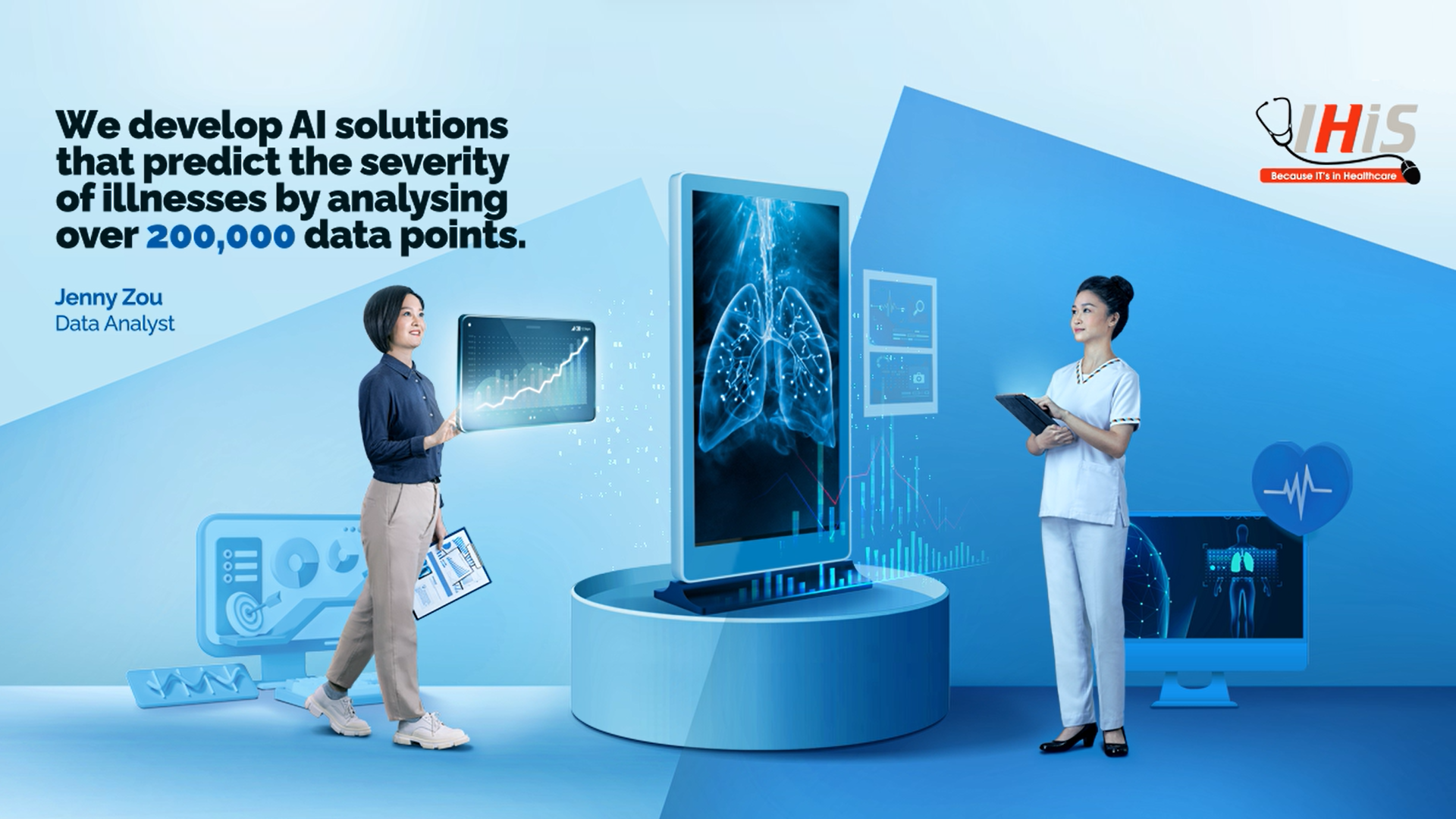The CAPE Challenge
One of the projects Jenny works on is the Community Acquired Pneumonia and COVID-19 Artificial Intelligence Predictive Engine (CAPE). This AI tool determines the likelihood of whether a patient has mild or severe pneumonia, based on a chest X-ray image. Patients who are likely to become critically ill will be flagged, which enables prioritisation of treatment resources.
The collaborative nature of the CAPE project, involving different teams within IHiS and Changi General Hospital (CGH), presented many challenges which had to be overcome.
Jenny recalls, “we aimed to speed up the clinical prognostic scoring tool generation to aid clinicians assess the severity and disposition of pneumonia in patients.”
Multitasking and working with different teams at CGH presented another challenge. Jenny worked with the Data Management and Informatics teams for data collection and data anonymization, with radiology teams for model validation and image interpretation, and with IT teams for application installation and deployment.
“I had to quickly learn different domain knowledge in order to collaborate with different teams seamlessly.”
Within IHiS, Jenny’s work on CAPE involves a mix of data pre-processing, model building and UI generation. She explains that as they were building predictive models from three use cases, one member of the data science team was responsible for training each model separately, in parallel. They then packaged the solutions together for the subsequent UI generation.
Jenny’s time management skills were put to the test, as she was also working with doctors at CGH on a paper about CAPE. Jenny notes that she learned to quickly switch between different modes where necessary in order to keep up with the project timeline. She met with CGH teams frequently, both onsite and online to save time.
“When I was back in the office, after closing any daily matters, I switched to “research” mode as writing papers requires a larger block of time and deep thinking. This helped me adapt to both a “fast” and “slow” environment and enabled me to carry out my responsibilities successfully.”
Jenny recalls that convincing radiologists on the reliability of CAPE as a predictive tool presented another challenge, since the AI involved was a black box for them. In other words, the inputs and operations of the AI system used in CAPE was not visible to the users.
“We developed image interpretation techniques based on explainable AI (XAI) methods such as LIME, SHAP and Grad-CAM++ to generate the heat maps which displayed the important areas identified by AI. Radiologists could then understand how the AI interprets the X-ray image and were able to evaluate whether the localisation of the AI model is consistent with radiologists’ annotations. In this way, the AI solution is more transparent and easily accessible to them.”
While Jenny recalls the first half of 2020 being a particularly hectic period for her and the team, she looks back fondly at how they worked together, noting that everyone was passionate about the work and shared a sense of accomplishment when the project was rolled out.
Data Doing Good
Jenny explains that based on the burden of diseases in Singapore, respiratory infection, which includes pneumonia, is one of the leading causes of death in Singapore. She adds that coupled with the current COVID-19 situation, there is an unmet need for automated assessment tools that can rapidly stratify disease severity to aid clinicians in decision making.
“We aim to build predictive models using artificial intelligence, to develop decision support tools that can help doctors quickly detect whether patients have mild or severe pneumonia.”
One of Jenny’s proudest moments at IHiS to date has been collaborating with her colleagues on a paper about CAPE which was published in the Association for Computing Machinery (ACM) Special Interest Group on Knowledge Discovery and Data Mining (SIGKDD), a leading publication on data mining and analysis.
IHiS has rebranded as Synapxe, the national HealthTech agency. Read more about our new identity here.

